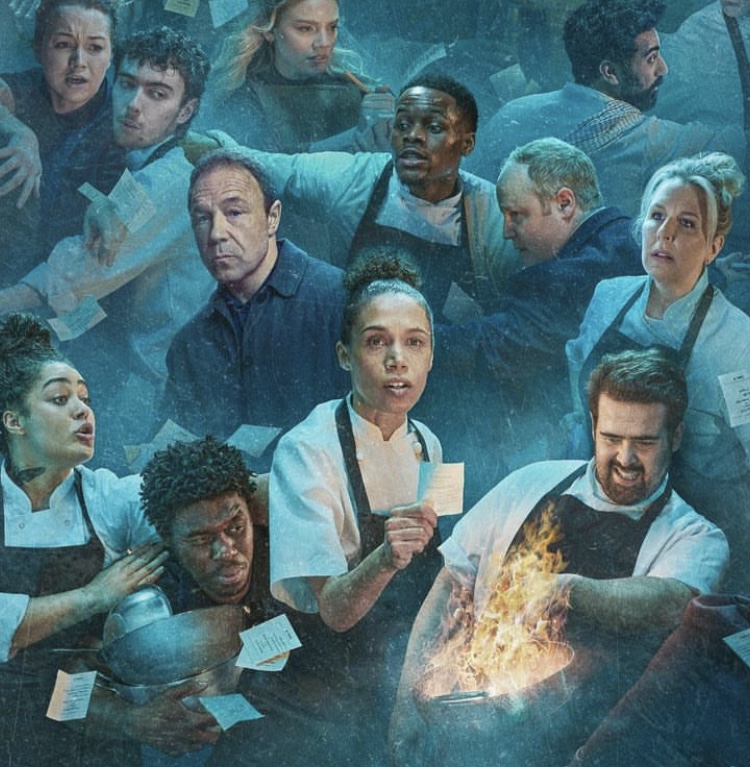
Life&Style Editor Serena Murphy celebrates the small screen continuation of Boiling Point, finding that it upholds the essence of the film and is skilfully realistic in its presentation of social issues
Critically acclaimed film Boiling Point (2021) is back on our screens, aired on BBC One from 1 October 2023, this time as a four-episode series- but can it continue the legacy that Boiling Point has created for itself? Can it continue to operate at 100 degrees?
By now, Boiling Point has gone through a series of transformations. It started life as a 2019 short film of the same name, directed by Philip Barantini and starring Stephan Graham. After success, it was adapted into a longer, 90-minute film (2021), directed by Barantini, written by Barantini and James Cummings, and starring Graham. It became known for its use of one shot throughout. After filming was cut short due to a COVID-19 lockdown, the film premiered at the 55th Karlovy Vary International Film Festival in August 2021, and was quickly met with critical acclaim. It received four nominations at the 75th British Academy Film Awards: Outstanding British Film, Outstanding Debut by a British Writer, Director or Producer, Best Actor in a Leading Role, and Best Casting. Given its success, news of its continuation as a BBC series was met with scepticism by many, myself included. How was it going to maintain its fever pitch and anxiety-inducing rhythm as a series?
Set in the months after the time frame of the film, the series focuses on Carly (Vinette Robinson), who also played a prominent role in the film as Andy Jones’ (Stephen Graham) sous chef, as she battles life in her own recently opened restaurant, ‘Point North’. Graham also makes a re-appearance as he navigates life after the film’s cliff-hanger ending. Key members of the film cast also return, as the four-episode show uncovers more about the personal lives of head baker Emily (Hannah Walters), her apprentice Jamie (Stephen McMillan), pot-washer Jake (Daniel Larkai), and waitress Robyn (Áine Rose Daly).
The way that Boiling Point manages to fit such complex and unexpected character arcs into a four-episode series is indicative of excellent writing and directing
The way that Boiling Point manages to fit such complex and unexpected character arcs into a four-episode series is indicative of excellent writing and directing. It leaves viewers who perhaps made a more negative perception of certain characters in the film realise just how complex and multifaceted each character is. In a way, it carries an underlying and perhaps unintended, yet deeply important message that you may never know what troubles someone is facing in their personal life. In this sense, it continues the sentiment that the film grappled with so well: it teaches us how dangerous it can be to assume the lack of complexity in other people’s lives, and that there is almost always a deeper reason for someone’s actions.
With its ability to develop such compelling character arcs, charting the personal and private lives of the cast outside of the kitchen setting, the series sacrifices one of the most distinctive features of the 2021 film: the fact that it was shot in one take. Far from being a gimmick, as continual shot films are often labelled as by critics, the technique complemented and heightened the realism of the piece, ebbing, flowing and building to crescendo in a way that hospitality workers in busy restaurants know all too well. Before watching the show, I believed that this technique was integral to its gut-wrenching effect on the viewer. However, watching the show, which is not shot continually, my theory about the vitality of the single shot element was utterly disproved. It became apparent that the foundations of Boiling Point’s chaotic, yet immersive realism was in fact the direction, script and acting, rather than that one technique.
Boiling Point’s often intensely and eerily realistic writing allows for its discussion of these issues to feel natural
Shows are seldom able to capture both the joys and hardships of real life in a way that is relatable yet also powerfully entertaining. It can often feel as though shows try to reach a sort of social commentary quota, touching upon as vast an array of social and political issues as they can. Often, this leaves issues without the time, attention, and sensitivity that they require. Boiling Point as a series could easily fall into this trap. But it does not. It manages to discuss a wide variety of social issues, including misgendering in the workplace, financial struggles, alcoholism, poverty, and mental health issues. Boiling Point’s often intensely and eerily realistic writing allows for its discussion of these issues to feel natural, preventing their inclusion from seeming disingenuous.
Overall, as a series, Boiling Point’s brilliant, frustrating and anxiety-inducing nature continues, making it a must watch. The series’ plot is a continuation of the film, so it is recommended to watch the film first! Boiling Point will leave hospitality workers dumbfounded at the sheer accuracy of its depiction of life in a bustling restaurant- so, if it’s your day off, be prepared to be plunged back into the world of work. Otherwise, be prepared to never give a waiter a hard time again.
Rating – 4.5/5
Read more TV articles here:
Character Spotlight: The Seventh Doctor
Comments